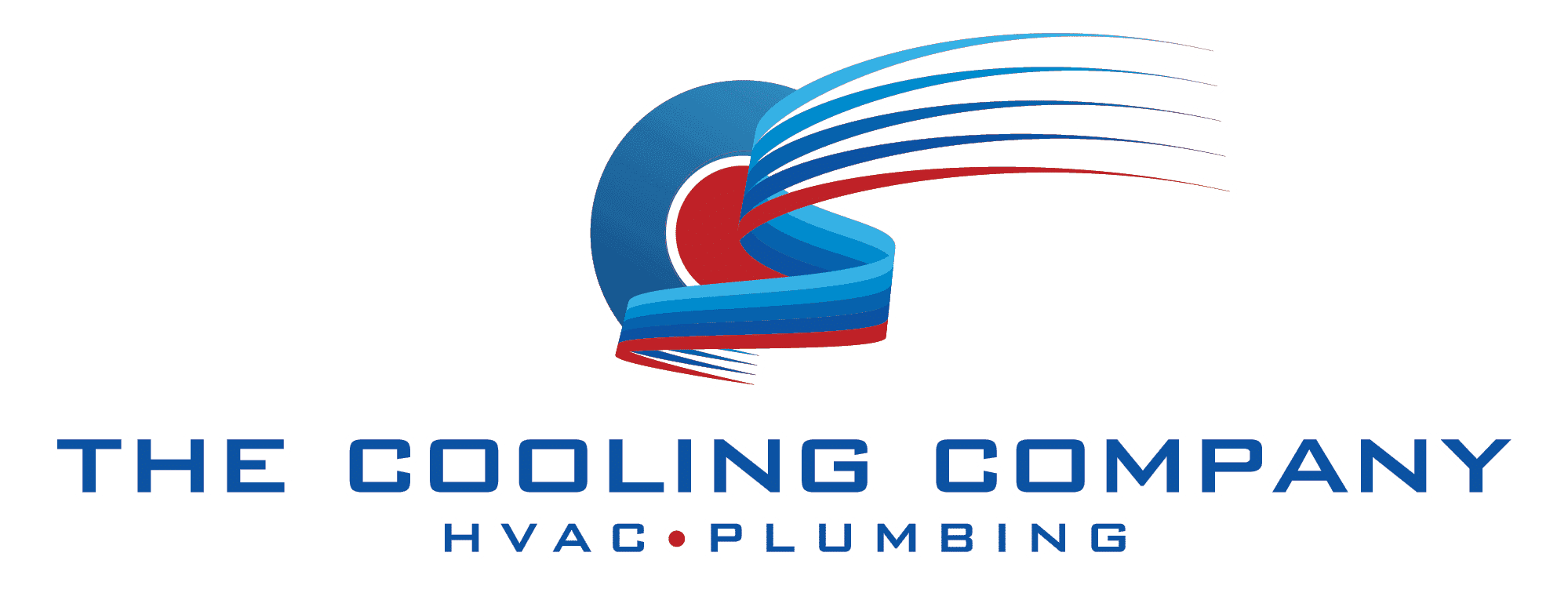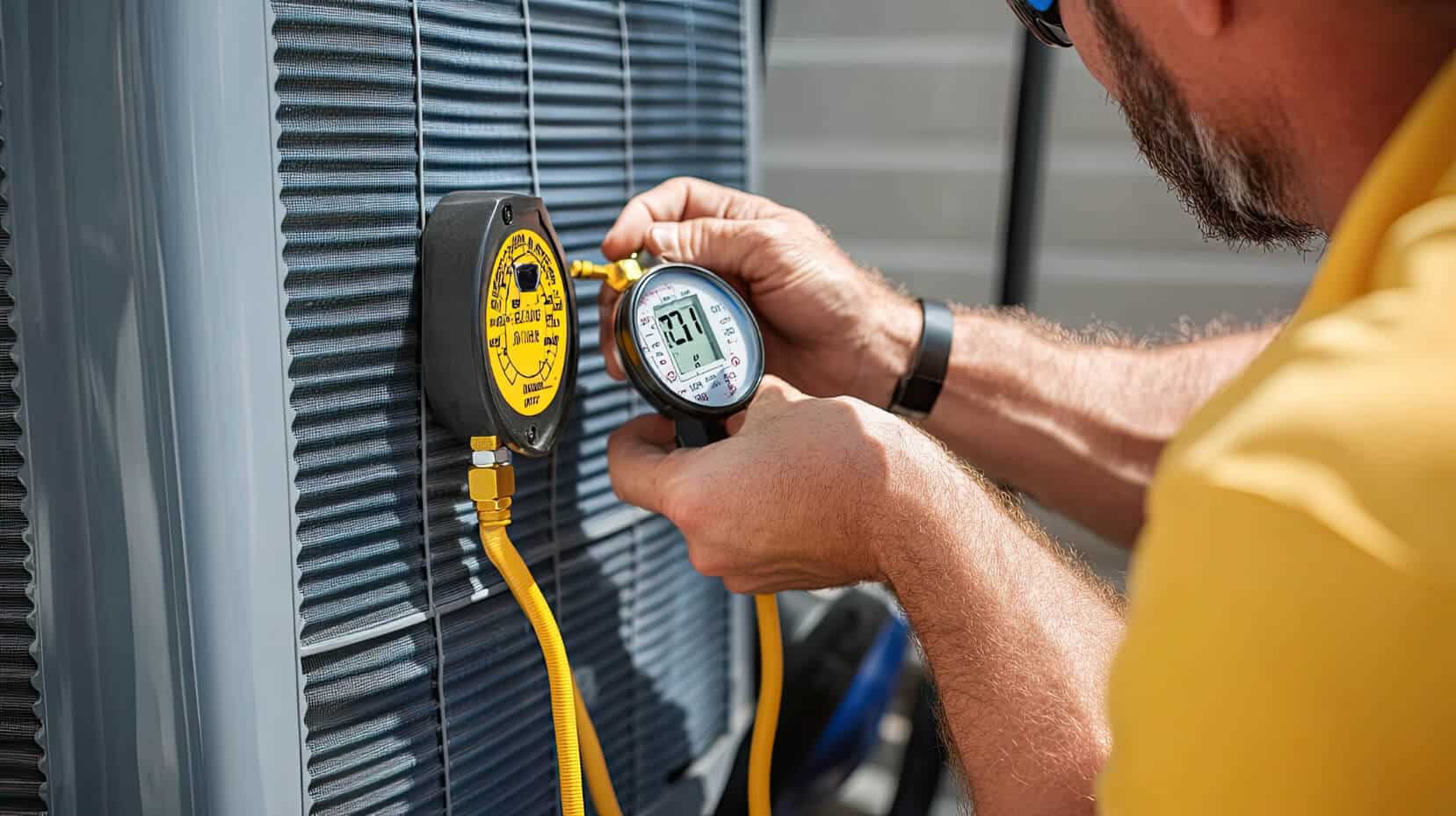Short answer: Your HVAC (Heating, Ventilation, and Air Conditioning) system directly affects maintaining the comfort of your home year-round. But when it malfunctions, it can be frustrating and costly to repair. The good news is that many common HVAC problems can be diagnosed and, in some cases, fixed by homeowners without any specialized training. In this guide, we will explore the 12 most common HVAC issues you can troubleshoot yourself, helping you ensure that your home remains a comfortable haven.
Common HVAC Problems You Can Troubleshoot

1. Dirty or Clogged Filters
Clogged filters are the single most common cause of reduced HVAC performance in Vegas homes, especially during summer when dust and pool‑area fine particles spike. A dirty filter reduces airflow, forces the system to run longer, raises bills, and can cause ice on evaporator coils.
Quick DIY filter check
- Replace disposable filters every 30-90 days depending on type, occupancy, and pets. In Las Vegas, check monthly during summer.
- Hold the filter up to a light source. If you cannot see light through most of it, replace it.
- Note filter size and MERV rating before purchasing replacements.
Filter replacement checklist
- - Turn system off at thermostat and breaker.
- - Remove the old filter and check arrow for airflow direction.
- - Install same-size filter with the airflow arrow pointing toward the blower.
- - Record replacement date in your phone notes or maintenance log.
Expert tip: Upgrading to a MERV 8-11 can improve indoor air quality, but higher MERV can restrict airflow if your system isn’t sized for it. Need guidance on the right filter for your Lennox or other system? See our Lennox parts and warranty information to match components properly.
Preventative Maintenance
When to DIY and When to Call an HVAC Pro in Las Vegas
Knowing which repairs are safe for homeowners helps avoid costly mistakes. Use this simple decision guide tailored for Nevada homes.
- DIY safe (do these first)
- Replace filters, reset thermostats, clear visible debris from outdoor unit, check breakers, change thermostat batteries.
- Flush condensate lines with vinegar and inspect duct registers for blockages.
- Call a pro (schedule service)
- Refrigerant leaks or low refrigerant - hazardous and regulated.
- Complex electrical issues, ignition or furnace repairs, compressor failures, sealed‑system work.
- Coil replacement, brazing pipes, or when unusual noises persist after basic checks.
Actionable next step: If you are in Summerlin, Henderson, or surrounding Las Vegas neighborhoods and suspect a refrigerant leak or electrical fault, call us at (702) 567-0707 for a certified technician. For specific Lennox coil issues, we recommend our coil pairing guide.
As it ages, your HVAC system is likely to experience more problems. The best way to minimize these problems is to sign up for a preventative HVAC maintenance plan, which includes regular professional maintenance and inspection of your entire system. The Cooling Company offers a comprehensive preventative maintenance plan that’s specially developed to keep your HVAC system problem-free and functioning at optimal performance and efficiency. Contact us at (702) 567-0707 to find out about our top-quality HVAC maintenance services.
2. Thermostat Issues
Thermostat problems are often easy to solve yet commonly misdiagnosed as major system failure. In Las Vegas, homeowners switching between cooling cycles and heat in shoulder seasons can trigger mode or setback errors.
Troubleshooting steps
- - Verify the thermostat mode is set to "cool" or "heat" as needed and the fan is on "auto."
- - Replace batteries yearly if your thermostat is battery powered.
- - If your thermostat is programmable or smart, check Wi-Fi connectivity and app settings after power outages.
- - Perform a quick reset per the manufacturer instructions to clear temporary faults.
When accuracy matters
- Use a second thermometer placed near the thermostat to confirm the reading. If the thermostat reads 3-5°F off, it will short‑cycle the system and create comfort issues.
- For Lennox thermostat owners, learn how thermostat choice impacts energy savings and compatibility.
Safety note: Do not remove thermostat wires if you are unsure about labeling; mark wires before disconnecting. If wiring looks burned or loose, call a pro.
12. Water Leaks
In Las Vegas, high AC run times mean condensate drainage is a frequent issue. Small clogs quickly lead to overflowing drain pans, water stains, and mold risks.
Common causes and DIY fixes
- - Clogged condensate drain line: Use a wet/dry vacuum at the outside drain access to pull debris, or flush with a few cups of distilled white vinegar monthly.
- - Damaged or rusted drain pan: Inspect the pan; minor rust spots can be sealed with an epoxy, but larger damage needs replacement.
- - Frozen evaporator coil: Often caused by restricted airflow from dirty filters. When ice melts, it creates excess water that can leak.
Quick condensate check checklist
- - Turn off the unit and let ice melt fully if present.
- - Remove and inspect the condensate pan for holes or standing water.
- - Locate the outdoor condensate pipe and run a vinegar flush or use a vacuum.
- - If you see brown/black slime, call a technician to prevent mold growth.
Pro warning: If water is leaking near electrical components, shut off power at the breaker and call The Cooling Company for a safe assessment.
Seasonal Maintenance Checklist for Las Vegas Heat
A short seasonal checklist helps prevent the top causes of mid-summer failures. Complete these tasks before peak heat hits.
- Pre-summer homeowner checklist
- Replace HVAC filters and note filter size and MERV rating.
- Clear 2-3 feet of debris from around the outdoor unit.
- Inspect ductwork accessible seams and weatherstrip doors/windows for leaks.
- Schedule professional tune-up for blower, refrigerant check, and coil cleaning.
- Winter/shoulder season checklist
- Test heating function and check pilot/ignition if applicable.
- Verify thermostat scheduling for energy savings.
- Inspect attic insulation and return ductwork for gaps.
Tip: For assistance comparing system upgrades or understanding long-term savings, check our Lennox system pricing and RTU efficiency articles.
Cost, Warranties, and Replacement Considerations
When a DIY clean is not enough, homeowners need to weigh repair versus replacement. This section helps Las Vegas homeowners make informed choices.
- Estimate guide
- Professional coil cleaning and minor repairs: typically lower cost than component replacement; expect a quote after inspection.
- Coil replacement or matching new coils to compressors requires proper AHRI matches to maintain efficiency. For Lennox systems, verifying coil matches ensures warranty compliance.
- Warranty check
- Before paying for major parts, check your system's parts warranty. Lennox components often have specific coverage terms that can reduce out-of-pocket costs.
- When to replace
- If your system is over 12-15 years old, recurring major repairs, or efficiency has notably dropped, consider replacement estimates. Compare models and total cost of ownership with our Lennox system pricing guide.
Call to action: If you want a no‑pressure estimate tailored to your home and current unit, contact The Cooling Company - we serve all Las Vegas neighborhoods and can advise on repair vs replace decisions.
Related service: Need AC service in Las Vegas? Explore our AC repair and AC maintenance services for Las Vegas homeowners.
Need HVAC Service in Las Vegas?
The Cooling Company provides expert HVAC service throughout Las Vegas, Henderson, and North Las Vegas. Our licensed technicians deliver honest assessments, upfront pricing, and reliable results.
Call (702) 567-0707 or visit AC repair, maintenance, heating, or installation for details.


